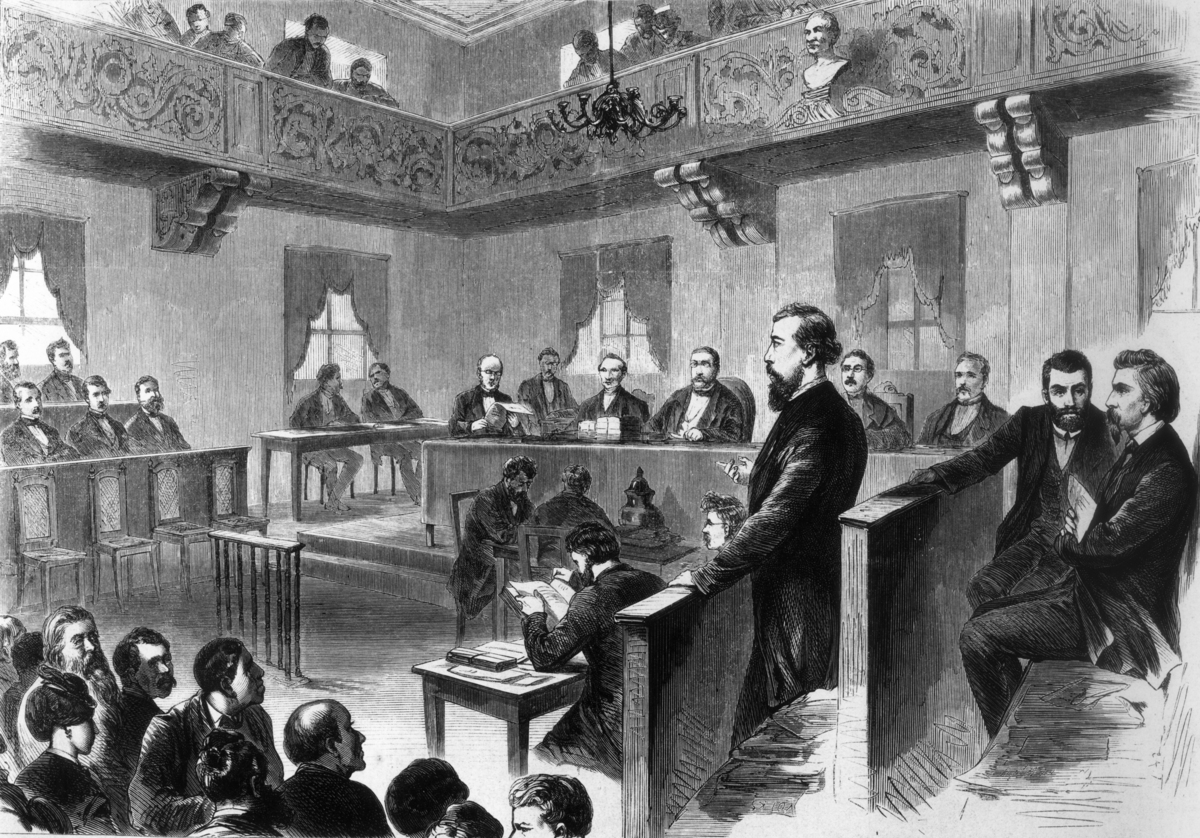Abstract
In the autumn of 1870, public opposition to the war against France
was voiced in the Reichstag by August Bebel (1840–1913) and Wilhelm
Liebknecht (1826–1900). Bebel would later go on to express support for
the Paris Commune in a speech to the Reichstag on May 25, 1871. As a
result, these two Social Democratic leaders—together with Adolf Hepner
(1846–1923), an assistant at the Socialist
Volksstaat—were tried before the
Court of Assizes in Leipzig from March 11–26, 1872. The formal charge
against the trio was that they had made “preparations for high treason.”
Actually, their speeches and the fledgling party they represented
threatened neither Bismarck’s policy nor public peace at that time. But
their sin was to have linked opposition to Germany’s annexation of
Alsace and Lorraine with support for the struggle of the Communards in
Paris: that linkage greatly increased workers’ respect for these Social
Democratic parliamentarians while damning them, in the eyes of most
middle- and upper-class Germans, as dangerous revolutionaries who
endorsed terror and the wanton destruction of property. This two-week
trial was relatively long by the standards of the day, and the
prosecution was forced to make its case mainly by citing allegedly
treasonous phrases from the writings of the two principal defendants
(the case against Hepner was abandoned along the way). Both aspects only
heightened the trial’s political impact, as did the court’s
decision—unwarranted on constitutional grounds—to strip Bebel of his
Reichstag mandate (he later won a by-election). On March 26, 1872, Bebel
and Liebknecht were each sentenced to a two-year prison term under
“honorable custody” in the Hubertusburg Castle in Saxony. On July 8,
1872, Bebel entered prison, where he joined Liebknecht, who was already
incarcerated. This contemporary woodcut shows Liebknecht addressing the
court; Hepner has turned to speak to Bebel.
